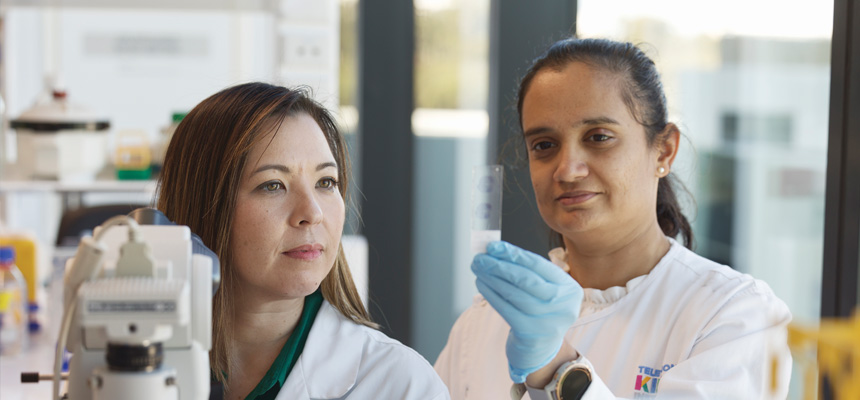
Pictured: Assoc. Prof. Raelene Endersby with Dr Hetal Dholaria
The WA Kids Cancer Centre has a suite of world-leading research projects to unlock new treatments for childhood cancers, including some of the rarest and deadliest forms of the disease.
Pineoblastoma – a tumour on the brain’s pineal gland, which regulates sleep hormones – falls into that category. It primarily affects babies under the age of one. These infants are too young for radiotherapy, and surgery is difficult because the pineal gland sits in the centre of the brain.
Fewer than half of the babies diagnosed with pineoblastoma will survive. Co-Head of the The Kids Brain Tumour Research team, Associate Professor Raelene Endersby, said that meant there had been very few clinical trials for new treatments.
The challenge with pineoblastoma was that, due to its rarity and low survival rates, there wasn’t a standard of care.
“That meant that kids would go into hospitals around the world and be treated a bit haphazardly. Most of the time, they’re treated under protocols established for other types of brain cancer.”
Professor Nick Gottardo led a global team to perform a meta-analysis of treatments and their associated outcomes for more than 500 children with pineoblastoma.
This has now led to the establishment of a standard-of-care protocol for the disease, endorsed by leading clinicians and researchers around the world.
“It’s really important for treatment of this disease globally, because it clearly sets out the chemotherapy treatment protocol that will be most effective and takes the guesswork out of it for the treating oncologist,” Associate Prof Endersby said.
“This means that we can now design clinical trials for new treatments that are specific to pineoblastoma, using this standard of care as the benchmark and adding new treatments to improve survival rates for future patients.
